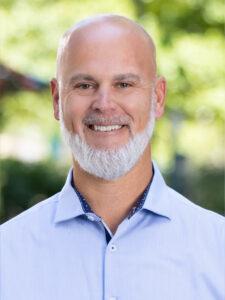After six months at FiberLight, CEO Bill Major has his sights set on big growth for the company — specifically through lit and dark fiber builds and an “opportunistic” M&A pursuit.
“We are myopically focused on being really, really good at a couple of things,” Major told Fierce Telecom. “There's a lot of competition in the space that tries to be everything to everyone, and you can't really perfect your craft.”
In 2022, FiberLight struck an agreement to be acquired by infrastructure investment firm H.R.L. Morrison & Co. Major was appointed CEO in April this year, the same month the private equity deal was completed.
The fiber provider now has approximately 19,000 route miles of network, about 2,000 more than it did when Major spoke with Fierce last spring. Ninety percent of the network is underground and only around 2% of the company’s fiber is still dark.
Since April, Major said FiberLight has started “some large builds” throughout DASH, a moniker for the network spanning across Dallas, Austin, San Antonio and Houston in Texas.

(FiberLight)
“We also have some recent wins, some larger projects, in the Virginia area,” Major added, “and some upcoming wins that we expect to be awarded probably in the next two months, too… So definitely have a decent amount of projects going on.”
All of FiberLight’s builds are success based, meaning it already has an anchor tenant facilitating each project.
As part of its expansion strategy, FiberLight is also hoping to cross into new states. The Carolinas are of “great interest” to the company, as well as growing its Georgia footprint, to ultimately build up the southeast corridor to its Virginia assets. Currently, the provider has Atlanta covered, and Major said the new landing station and subsea cables in Myrtle Beach make for an “attractive” opportunity.
With a new owner, FiberLight isn’t “handcuffed by aging debt,” he added. “Connecting to Virginia and bringing it back down and around is opportunistic right now for us. To just pick pockets and not try to build a continuous network, you lose scale.”
While Major said the Broadband Equity, Access and Deployment (BEAD) program doesn’t quite align with FiberLight’s strategy, the company will look to help facilitate recipients of grants and awards.
For its part, FiberLight will look “more toward state initiatives versus federal,” he noted.
Additionally, a strategic focus for the company moving forward is to steer away from one-time revenue and focus on monthly, recurring funds from the enterprise space.
That includes supplying wide area networks and Ethernet products to institutions with multiple campus locations, for example. In order to get that “enterprise engine” accelerating through the end of the year and into 2024, FiberLight has built up an enterprise sales team including the hire of an unnamed enterprise VP of sales that will report to Chief Revenue Officer Tyler Coates.
And FiberLight is looking to expand not only through expansion via grants and funding, but also through acquisition.
Major said the company has two “active opportunities right now” in Virginia and Texas, and is exploring one more that would be a "pure asset play" where it would acquire conduit and dark fiber. He said those deals might accelerate plans to go from Virginia down to the Carolinas so FiberLight could have a continuous footprint.
“We will be organically growing, naturally with our go to market strategy, but we will become a serial acquirer over the next couple of years,” said Major.
Major said he expects that the fiber industry is “headed for some rough waters,” due in part to rising interest rates and inflation, and a “future potential soft landing or hard landing of a recession next year.”
He also anticipates that as federal funding like BEAD hit the market, supply chain issues will resurface for companies that aren’t "focused on the future."
“There are going to be organizations that are hurt because they're not able to get those materials to facilitate, but we've got a good process to make sure we're ahead of the curve,” he said.
To become a serial acquirer, Major said the strategy is just “to wait for the right time.”
He added, “After the BEAD money starts being misappropriated, misallocated by people that have never operated before, there's going to be distressed assets that we'll definitely look to pick up.”